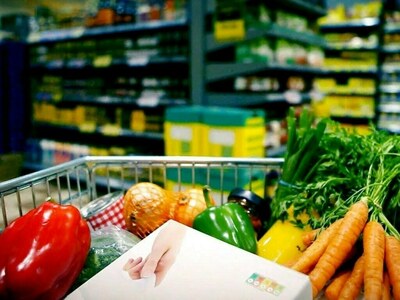Islamabad: A recent survey conducted by Business Recorder reveals a notable upward trend in the prices of essential kitchen items over the past week compared to the previous week. This surge in prices has sparked concerns among consumers, highlighting the economic challenges faced by households.
One of the significant findings of the survey is the increase in sugar prices, rising from Rs 6,700 to Rs 6,900 per 50kg bag. This price hike has repercussions for consumers as retail prices for sugar have reached Rs 145 per kg, compared to the previous Rs 140 per kg.
Similarly, the chicken market experienced a notable fluctuation, with wholesale prices decreasing from Rs 13,000 to Rs 12,600 per 40kg. However, the impact on retail prices was marginal, with chicken now being sold at Rs 340 per kg compared to the previous Rs 345 per kg. The same trend was observed in the prices of eggs, with a considerable jump from Rs 9,890 to Rs 10,700 per carton.
While wheat flour prices remained relatively stable, the survey noted an increase in tea prices, particularly for Lipton Yellow Label. Traders reported a hike from Rs 2,150 to Rs 2,800 per 900-gram pack. This shift may pose a challenge for tea enthusiasts who are now grappling with higher prices for their preferred brands.
Essential commodities such as powdered chili and turmeric powder experienced a welcome reduction, easing the burden on consumers. However, concerns arose in response to an increase in domestic gas prices, prompting tandoor owners to raise the prices of roti, naan, and paratha.
The liquefied petroleum gas (LPG) prices also witnessed an upward trend, with distributors and traders selling the commodity at rates exceeding the official prices set by the Oil and Gas Regulatory Authority (OGRA).
Furthermore, the survey highlighted an increase in ghee-cooking oil prices, impacting both B-grade and best-quality brands. This escalation, coupled with the rising cost of cooking oil, adds to the financial strain on households.
Despite these fluctuations, pulses prices remained stable, providing a sigh of relief for consumers. The survey also noted minor fluctuations in milk and yoghurt prices.
Vegetable prices displayed mixed trends, with variations in ginger, garlic, potato, tomato, and onion prices. The stability or changes in prices of capsicum, various pumpkin varieties, tinda, brinjal, cauliflower, cabbage, bitter gourd, cucumber, radish, turnip, yam, peas, and fresh beans were observed in both wholesale and retail markets.
Fruit prices, on the other hand, remained relatively steady, with notable figures for bananas, guava, apples, oranges, pomegranates, and grapes. However, the overall findings of the survey raised concerns about the effectiveness of monitoring by regulatory bodies.
Discrepancies between official and market prices persist, and retailers reportedly set their prices without displaying official price lists, further complicating the situation for consumers. This situation underscores the need for a closer examination of market dynamics and regulatory measures to ensure fair pricing for essential commodities.
SEZs: Govt likely to set up ‘Nidra’ to supervise SEZs

